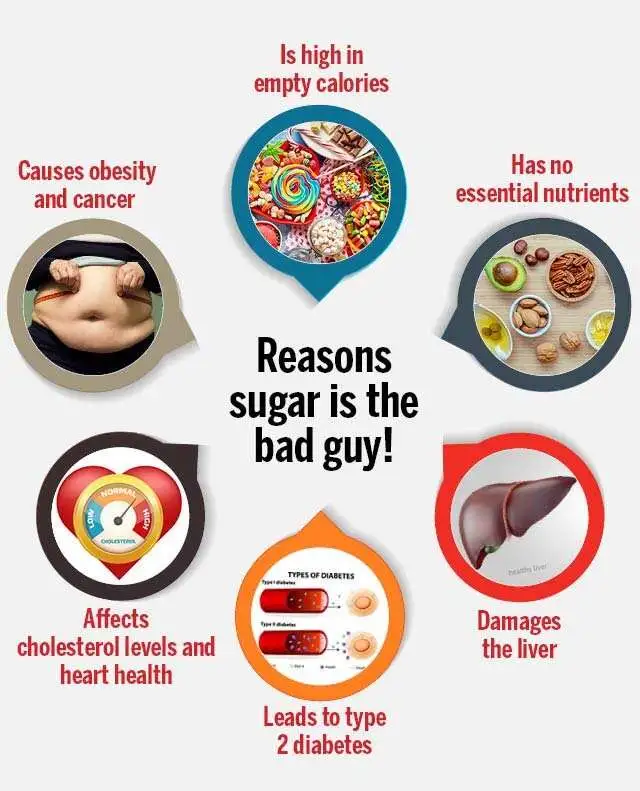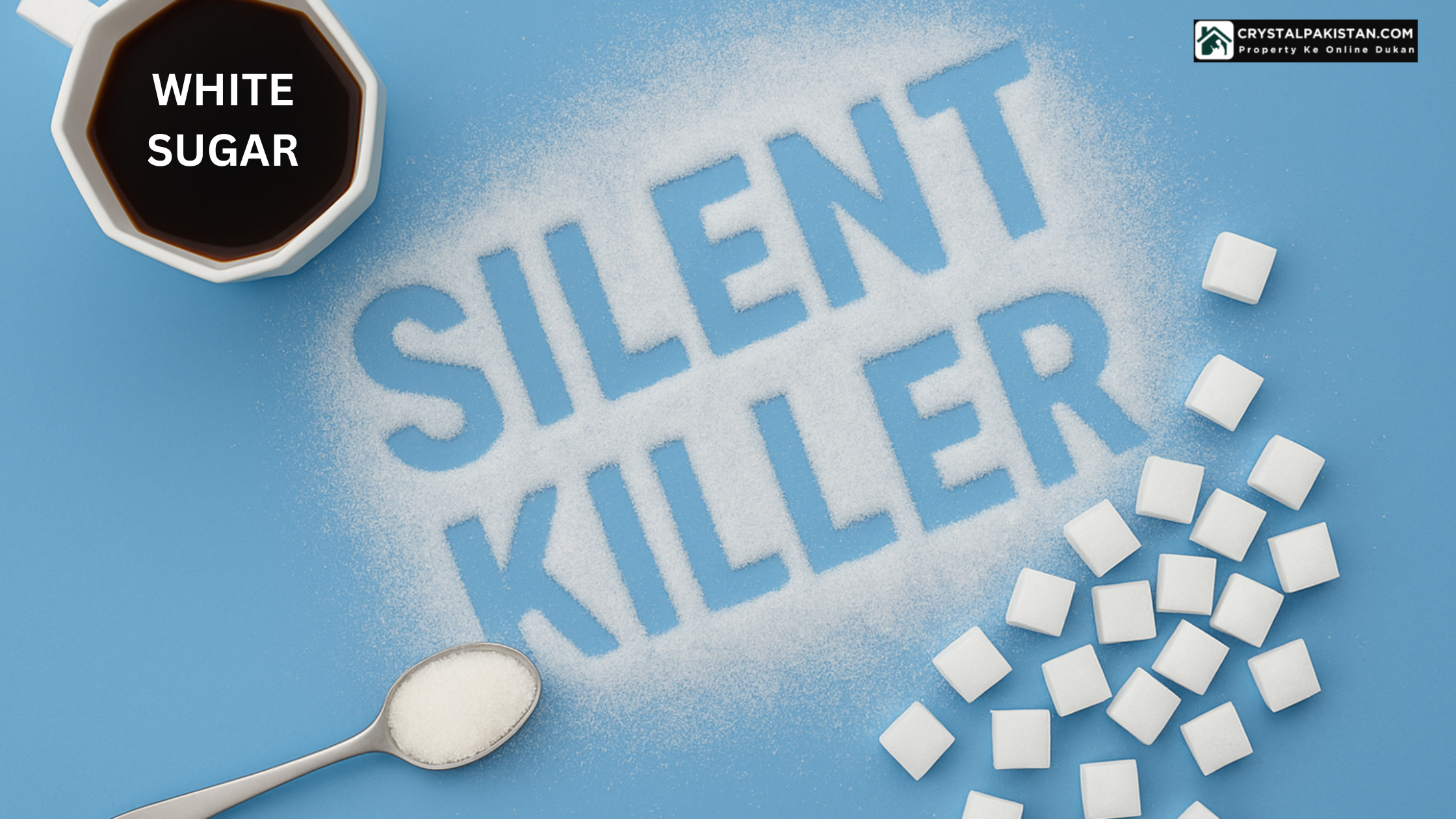White sugar may seem harmless, but mounting evidence shows it quietly fuels chronic health issues. In this blog, we unpack five science-backed truths that reveal the dark side of our sweetest habit.
White sugar may taste sweet, but its long-term effects on health are far from harmless. According to the World Health Organization (WHO), adults should limit added sugar intake to less than 10% of daily calorie, yet most people consume almost double that amount. Research links excessive sugar consumption to obesity, type 2 diabetes, cardiovascular disease, and even accelerated aging.
This is why nutritionists often call sugar a “silent killer”, because its damage develops quietly inside the body before showing serious symptoms. In this blog, you can read about 5 scientific facts about sugar’s health risks, backed by research, to help you make informed dietary choices.
1. Excess Sugar Raises Heart Disease Risk
A long-term study published in JAMA Internal Medicine found that those consuming 17–21% of daily calories from added sugar had a 38% higher risk of dying from cardiovascular disease compared to those consuming just 8%. Added sugar promotes inflammation, fatty liver, weight gain, and high blood pressure, key pathways to heart disease.

2. Added Sugars Are ‘Empty Calories’ That Harm Metabolic Health
Added sugar contributes little to nutrition and displaces vital vitamins and minerals. Diets high in added sugars, especially from ultra-processed foods. This may lead to obesity, type 2 diabetes, and metabolic syndrome. Limiting consumption to under 10% of daily calories is widely recommended for better health.
3. White Sugar Fuels Inflammation and Insulin Resistance
Chronic high sugar intake triggers insulin resistance and systemic inflammation. Studies link this metabolic disruption to an increased risk of diabetes, obesity, Alzheimer’s, and other non-communicable diseases.
Also Read: 5 Non-Communicable Diseases to Keep Yourself Aware These Silent Killers
4. A Silent Driver of Obesity and Diabetes
A literature review in Mayo Clinic Proceedings identified added sugars, particularly fructose, as a key driver of type 2 diabetes and obesity. Fructose impairs glucose tolerance, promotes fat storage, and raises blood pressure. Ultra-processed foods with high sugar levels further increase cardiovascular risk by 17%.
5. White Sugar Erodes Dental Health on a Massive Scale
According to WHO, cutting sugar from diets could help prevent dental caries (tooth decay) in up to 2.5 billion people worldwide. Sugar’s impact on oral health is widespread and directly linked to its role in acid production and enamel erosion.
Takeaways
While enjoying sugar occasionally won’t cause immediate harm, consistent overconsumption can slowly erode your health. That is why it is one of the most concerning dietary risk factors worldwide. The evidence is clear: white sugar fuels obesity, weakens the heart, spikes insulin resistance, and increases inflammation. Choosing healthier alternatives like honey, stevia, or fruit-based sweeteners, paired with mindful eating, can help protect your body from the “sweet poison.” Ultimately, it’s not about total restriction but about balance, awareness, and conscious choices. By cutting back on sugar today, you’re investing in a stronger, healthier future.
FAQs
Is sugar a silent killer?
Yes. High intake of added sugar hijacks metabolism, fueling obesity, insulin resistance, and heart disease, making it a true “silent killer.” That is why it is the basic precursor behind many non-communicable diseases.
Are sweeteners better than white sugar?
Not always. Recent research finds artificially sweetened beverages may increase type 2 diabetes risk by 38%, even more than sugary drinks. It challenges the idea that sweeteners are a safe swap.
Why is sugar called a silent killer?
Because its harmful effects, such as elevated triglycerides, metabolic dysfunction, and cardiovascular damage, develop quietly over time with no immediate symptoms.
Is sugar a sweet bliss or a silent killer?
While sugar delivers instant pleasure, its chronic overuse can trigger harmful biological changes. What starts as “sweet bliss” often ends as weakened health in disguise.
What is worse for you, sugar or sweeteners?
Both carry risks. Excessive sugar promotes obesity and metabolic disease, while some artificial sweeteners may impair insulin response and gut health, so neither is truly “safe.”
What is a good substitute for white sugar?
Choose natural options like stevia, monk fruit, or whole-food sources like fresh fruit purées, which provide sweetness without spiking blood sugar or adding empty calories.
What sugar is called white poison?
Refined table sugar (sucrose), often termed “white poison,” due to its lack of nutrients and association with obesity, diabetes, and metabolic syndrome.
What do doctors call the silent killer?
Medical professionals often compare high sugar consumption to industrial toxins, warning it’s as dangerous as well-known killers like tobacco and alcohol.



Join The Discussion